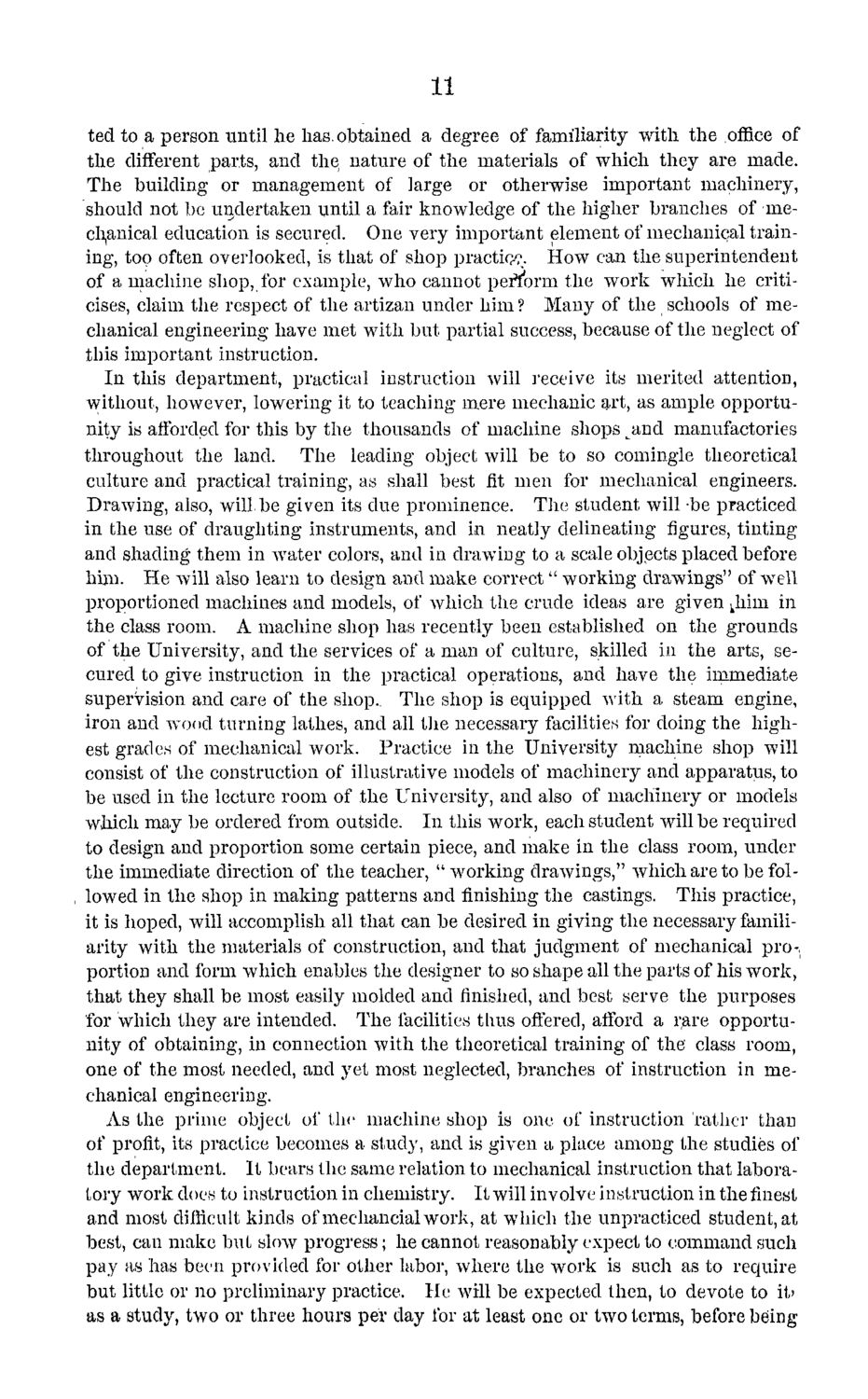| |
| |
Caption: Course Catalog - 1869-1870
This is a reduced-resolution page image for fast online browsing.

EXTRACTED TEXT FROM PAGE:
11 ted to a person until lie has. obtained a degree of familiarity with the office of the different parts, and the nature of the materials of which they are made. The building or management of large or otherwise important machinery, should not be undertaken until a fair knowledge of the higher branches of mechanical education is secured. One very important element of mechanical training, top often overlooked, is that of shop practiw. How can the superintendent of a machine shop, for example, who cannot perform the work which he criticises, claim the respect of the artizan under him ? Many of the schools of mechanical engineering have met with but partial success, because of the neglect of this important instruction. In this department, practical instruction will receive its merited attention, without, however, lowering it to teaching mere mechanic art, as ample opportunity is afforded for this by the thousands of machine shops tand manufactories throughout the land. The leading object will be to so comingle theoretical culture and practical training, as shall best fit men for mechanical engineers. Drawing, also, will be given its due prominence. The student will be practiced in the use of draughting instruments, and in neatly delineating figures, tinting and shading them in water colors, and in drawiDg to a scale objects placed before him. He will also learn to design and make correct " working drawings" of well proportioned machines and models, of which the crude ideas are given khini in the class room. A machine shop has recently been established on the grounds of the University, and the services of a man of culture, skilled in the arts, secured to give instruction in the practical operations, and have the immediate supervision and care of the shop.. The shop is equipped with a steam engine, iron and wood turning lathes, and all the necessary facilities for doing the highest grades of mechanical work. Practice in the University machine shop will consist of the construction of illustrative models of machinery and apparatus, to be used in the lecture room of the University, and also of machinery or models which may be ordered from outside. In this work, each student will be required to design and proportion some certain piece, and make in the class room, under the immediate direction of the teacher, " working drawings," which are to be followed in the shop in making patterns and finishing the castings. This practice, it is hoped, will accomplish all that can be desired in giving the necessary familiarity with the materials of construction, and that judgment of mechanical pro-, portion and form which enables the designer to so shape all the parts of his work, that they shall be most easily molded and finished, and best serve the purposes for which they are intended. The facilities thus offered, afford a rare opportunity of obtaining, in connection with the theoretical training of the class room, one of the most needed, and yet most neglected, branches of instruction in mechanical engineering. As the prime object of the machine shop is one of instruction rather than of profit, its practice becomes a study, and is given a place among the studies of the department. It bears the same relation to mechanical instruction that laboratory work does to instruction in chemistry. It will involve instruction in the finest and most difficult kinds ofmechancialwork, at which the unpracticed student, at best, can make but slow progress; he cannot reasonably expect to command such pay as has been provided for other labor, where the work is such as to require but little or no preliminary practice. He will be expected then, to devote to it> as a study, two or three hours per day for at least one or two terms, before being
| |